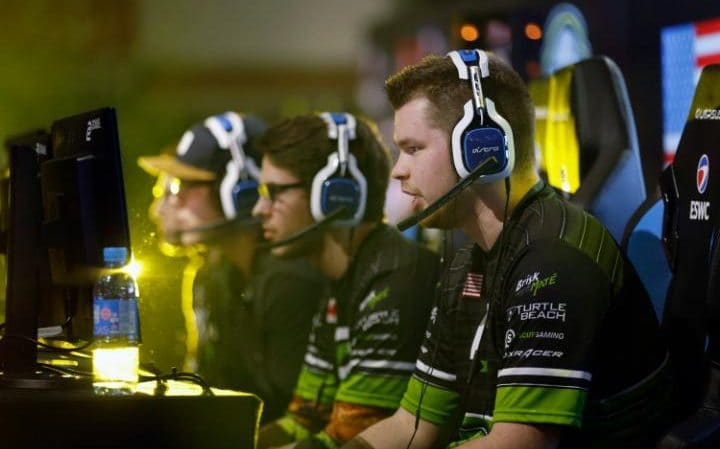
or years parents have been concerned about the amount of time their children spend playing video games but there’s more to worry about now than their square eyes and a lack of fresh air.
The popularity of esports tournaments, where players compete against one another on the latest computer games, is booming but as with any fast-growing industry it is attracting some undesirable interest including from illicit gambling websites.
The total number of hours spent watching esports events exceeded 6 billion globally in 2016, up 19pc compared to the year before, according to a study by IHS Markit.
As esports events have risen in popularity – and profitability – a growing number of businesses have sprouted up in a bid to leverage the trend’s success for their own gain.

The Gambling Commission secured the first prosecution of its kindearlier this year of two men running the unlicensed gambling website FutGalaxy.com which allowed gamblers – including people under the age of 18 – to use a virtual currency to bet on the outcome of esports matches.
After being shown footage of a 12-year-old boy gambling on the site, District Judge McGarva described it as “horrific” and added the video had “hit home to me how serious this is”.
The Gambling Commission said since November 2014, it had contacted 100 unlicensed online gambling sites and 16 of these were related to the issue of gambling using virtual currencies on esports tournaments.
It added unregulated third-party websites were on the rise and that one US report estimated the global ‘skins’ gambling market – where in-game items such as digital guns and knives are used as a proxy for gambling chips – was worth between $3.9bn and $5.1bn in 2016.
The issue of young people – predominantly the audience interested in esports – being lured into gambling on computer game tournaments is now a key focus for the UK’s Gambling Commission and will heavily feature on the agenda at charity GambleAware’s conference at the end of the year.
Marc Etches, chief executive at the charity, said it was “very alert” to the issue.
“We’ll be asking what implications this has for minimalising gambling-related harm in the future,” he said.
“Gambling is everywhere and technology makes it very accessible. One specific thing we will be exploring is this convergence between gaming and gambling, which is very real.”










